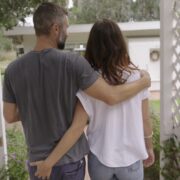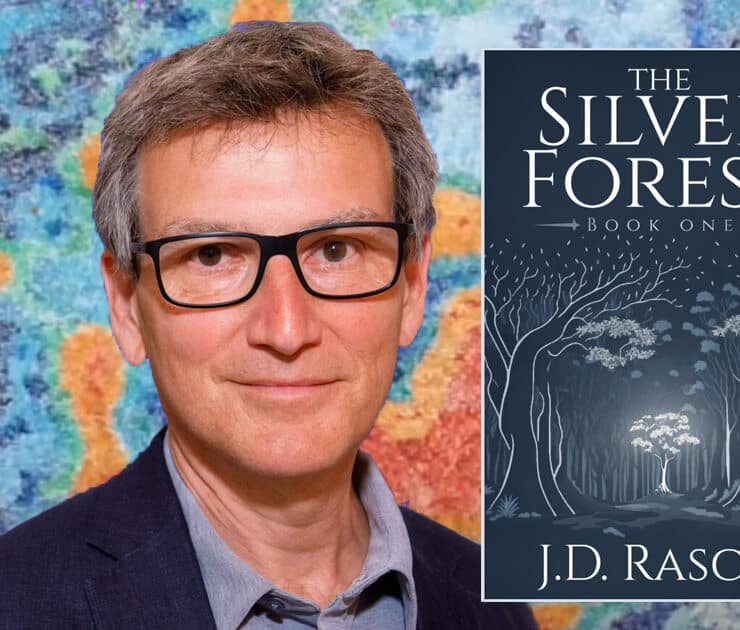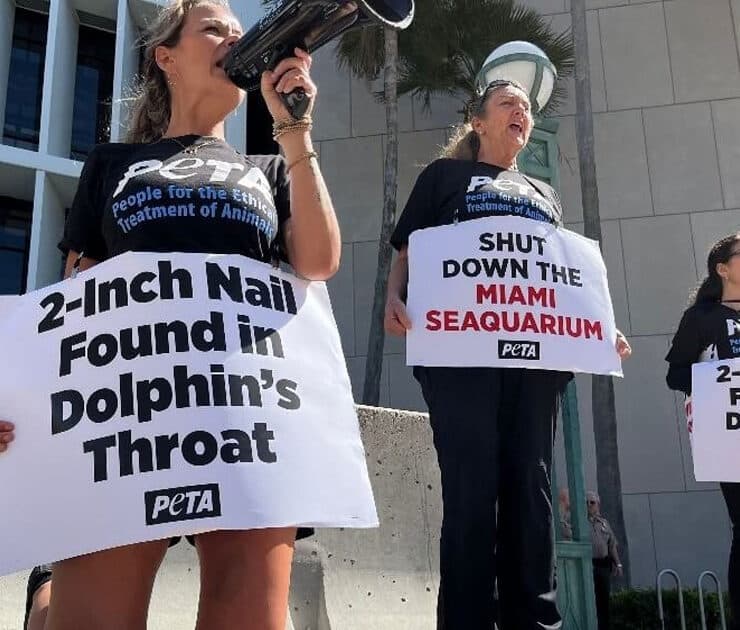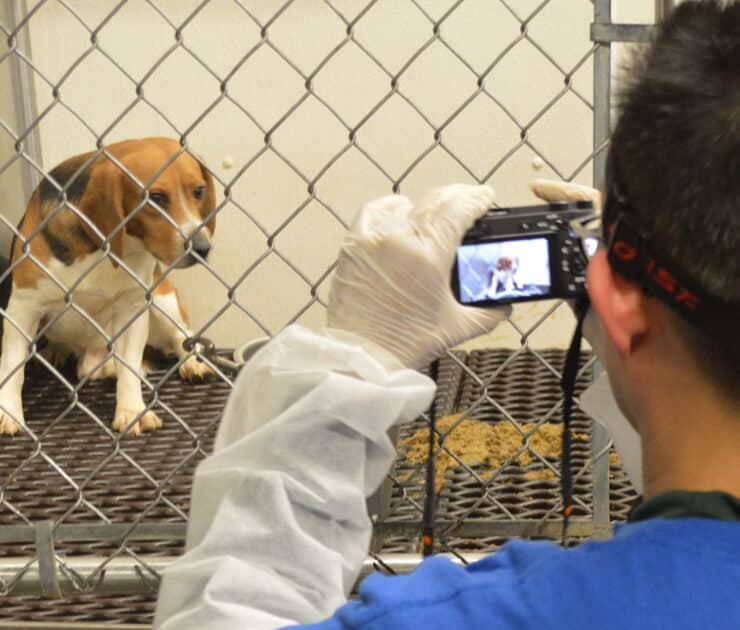Why African American Women Are Going Vegan in Droves

Four leading vegan African American women discuss the growing trend towards veganism in the African American community.
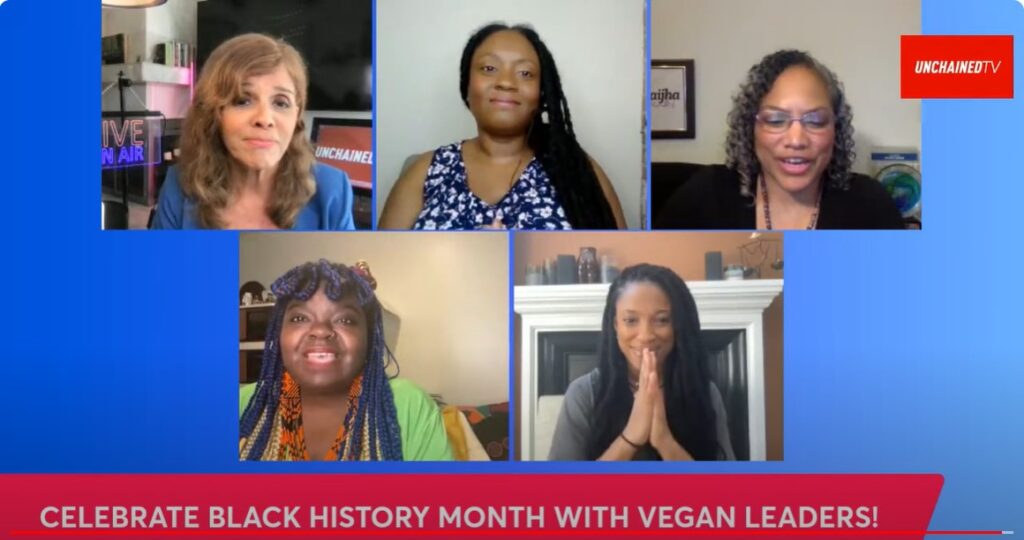
Los Angeles, February 29th, 2024 — According to numerous reports and surveys, African Americans are going vegan at a higher rate than other demographic groups in the United States, and women are more likely than men to dropkick meat. So, UnchainedTV gathered four female Black vegan leaders to discuss the dynamics fueling this trend.
This accomplished panel included: Gwenna Hunter, the founder of Vegans of Los Angeles Food Bank, restaurant owner Naijha Wright-Brown who is also the Executive Director of the Black Veg Society, Jasmine Leyva, the director and star of the documentary The Invisible Vegan, and Brenda Sanders, Founder and Executive Director of the Afro-Vegan Society. UnchainedTV’s Jane Velez-Mitchell hosted this compelling conversation, which you can watch in its entirety here:
Supporting Black People in Need

Gwenna Hunter is getting national recognition, in USA Today and other major publications, for the Vegans of LA Food Bank, which she founded and runs with help from Mercy for Animals’ People’s Fund. Hunter says that when she first landed in LA, she fell on hard times and was once in the same situation as many of the folks to whom she now serves healthy, vegan food for free. She said that, at one point, she had $5 to her name and described it as a scary situation she wouldn’t wish on anyone. She has since risen to become a national leader in the vegan/social justice sphere, founding Vegans for Black Lives Matter and leading the movement to end food insecurity in Los Angeles. She explains the historic nature of her work:
“The Food Bank is the first brick-and-mortar vegan food bank ever in Los Angeles, and I also believe — we’ve been doing a lot of research and I haven’t found the evidence that this is not true — that I am the first black woman to lead a brick and mortar vegan food bank in the country. There are other outreach programs, but as far as an actual certified vegan food bank, it appears that this may be the first one, hopefully, definitely, not the last.”
Hunter has been doing work with Black Lives Matter, Black Women Farmers of LA and a variety of other Black organizations. She explains the intersectionality between veganism and social justice:
“For me it’s about (vegan) food being an entitlement. Nutritious food is a birthright for all human beings. So, it’s a part of Black history, but it’s also part of planetary history as well. It’s just trying to change the narrative about free food, and our entitlement to it.”
“Animals are being killed right this moment. It’s a horror movie. But we can’t live in that all the time… You’ve got to get up and get back into that light. You’ve got to have a good time too. You have to make it fun.” — Gwenna Hunter, Vegans of LA Food Bank
Sending the Vegan Message to Black Communities
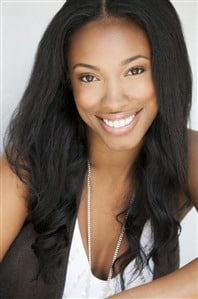
With a Bachelor of Arts in TV, film and media and a Masters of Fine Arts in screenwriting, Jasmine Leyva worked as an associate producer on the award-winning docuseries entitled Unsung. Soon after, she was given the opportunity to write and produce on Being, a docuseries highlighting dynamic entertainers in film and music. Jasmine and Kenny Leyva produced a feature-length documentary, The Invisible Vegan, a film that chronicles Jasmine’s journey away from the unhealthy, meat-laden lifestyle of her family to the embrace of a plant-based lifestyle with all its health benefits. The film also explains how plant-based eating is directly linked to African roots and how African-American eating habits have been debased by a chain of oppression stemming from slavery. She now celebrates the emergence of African Americans as a leading force in the vegan movement:
“I think now we’re in a place where we’re getting the visibility that we should have gotten a long time ago because, for a long time, no one wanted to bring culture, race, and heritage into the conversation. So, now we’re finally able to bring it into the conversation and finally able to pay respect and reverence to the people who actually poured into these movements… I’m just thankful that we get to claim the knowledge that we brought to the table.”
Leyva has had to be strategic about how she presents the vegan message as people can sometimes get offended by traditional vegan narratives that stress commonalities in suffering. She explains:
“I had to be very careful not to trigger my audience because a lot of black people felt they are living all of the things that we talk about. What they are going through, what these animals are going through, is what we are going through. We’re being beaten, we’re being mistreated, we’re being killed. So, as long as that is happening to their bodies, it’s going to be a hard thing to ask them to prioritize what’s going on with a chicken or cow.”
“This is one of the first times in history that Black Americans have even had some bit of control over what they put in their bodies. For the longest time, if you’re going historic, we were fed the scraps.” — Jasmine Leyva, The Invisible Vegan
Helping People Find Their Vegan Soul Food

Raised in the South Bronx, Naijha Wright-Brown was introduced to gardening, farming, environmentalism, sustainability, and the basics of eating healthy, while spending summers in Massachusetts as a teenager. She has an MBA in Business from the University of Phoenix and is a successful serial entrepreneur. When she relocated to Baltimore in 2005, she met her fellow Verizon Wireless co-worker, now husband, Gregory Brown. Now, she’s an owner of The Land of Kush vegan restaurant. She is also the co-creator of Vegan Soulfest and Maryland Vegan Restaurant Week, and the Executive Director of the Black Veg Society, a non-profit organization whose mission it is to educate predominantly Black, Indigenous and People of Color (BIPOC) communities on the benefits of holistic living and a plant-based diet. She explains why her restaurant has the intriguing name of The Land of Kush.
“Kush is an ancient civilization in Africa, along the Nile River. When people think of Kush, you know what they think of, but it is always dialogue that teaches people that blacks weren’t always slaves. We were powerful rulers, and we still are powerful rulers. So, you can do your research by learning more about the Land of Kush in Ethiopia.”
Wright-Brown is helping people discover vegan soul food while simultaneously on a mission to organize lots of vegan-themed events:
“I believe being relevant, staying in the face of people, organizations, schools, businesses, everyone, and just meeting them where they are, letting them know they have access to a place to get good vegan soul food.”
“It’s going to happen. One idea at the time. It’s not or, it’s and. We need to do this AND that AND that. Everybody can contribute in some way to reach the people.” — Naijha Wright-Brown, The Land of Kush
Educating People in Marginalized Communities
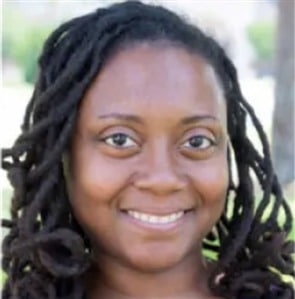
Brenda Sanders is a vegan food justice activist who co-founded Thrive Baltimore, a community resource center that offers free classes, workshops, cooking demos and other programming to support people who want to live a healthier, more sustainable lifestyle. She’s also Founder and Executive Director of Afro-Vegan Society, a nonprofit organization that provides resources to people in marginalized communities to assist them in transitioning to veganism. Sanders is also co-creator of Vegan SoulFest, an annual festival that celebrates culture and all aspects of vegan living. And, she is also the co-owner of The Greener Kitchen, a vegan deli and food distributor that produces plant-based foods that are both affordable and accessible. For her, education is key, as she explains:
“The dairy industry has so much money and so much power and I’ve been really happy to see that some of that power is starting to slip away because of education. And that’s why it’s so important for me and for my organization, the Afro-Vegan Society, to constantly be educating people about the facts, about these truths, because in many different neighborhoods and communities, this information just isn’t available, and that’s why I feel the Afro-Vegan Society exists.”
Sanders says one reason why the African American community is embracing veganism faster than other demographics is the growing awareness of the high levels of lactose intolerance among Black people. One of the key messages Sanders delivers in her educational programs is that cow’s milk is for baby cows, not humans.
“Within the black community, one of the things that surprises people all the time is that milk, the milk of an animal, is not natural for us to consume, for different reasons. Milk is for infants and it is species-specific. And, once these kinds of things start being talked about, people are like, ‘Wow, I did not ever even think about that!’ and it’s because of the programming and the advertisements. It’s because these things are literally and figuratively being shoved down our throats.”
“People understand where the future is headed. There’s just no denying it now, especially within the Black community, and I think this is because such a strong foundation is being built at the community level.” — Brenda Sanders, Afro-Vegan Society
What's Your Reaction?
Jordi Casmitjana is a vegan zoologist and author.

